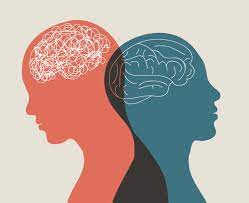If you are one of the millions of people who suffer from OCD or anxiety, you know that it can be a difficult condition to live with. The good news is that there are treatments available that can help you manage your symptoms and lead a normal life. In this blog post, we will discuss some of the most common treatments for OCD anxiety help, and how they can let you improve your quality of life.
Contents
What Is OCD Anxiety?

OCD anxiety can refer to any of the various types of obsessive-compulsive disorder. It is characterized by intrusive and persistent thoughts, worries, or fears that cause distress or interfere with daily activities. These obsessions and compulsions can be both physically and mentally taxing and often lead to feelings of shame, guilt, and frustration. Some of the common symptoms of this condition are:
- Intrusive, repetitive thoughts and feelings of dread or anxiousness.
- Constant worry about the future or past events.
- Imposing strict rules on yourself to reduce anxiety
- Having compulsive behaviors like counting and checking.
How Can I Help My OCD Anxiety?
The most important step in treating OCD anxiety is to first talk to a qualified mental health professional. A psychologist or psychiatrist can help you understand your condition, provide psychological counseling and create an individualized treatment plan that works for you. Medications like selective serotonin reuptake inhibitors (SSRIs) can reduce anxiety symptoms and help control obsessive-compulsive behaviors. Cognitive behavioral therapy (CBT) is another effective treatment for OCD that focuses on changing negative thought patterns and behaviors associated with the disorder.
Treatment For OCD Anxiety
The good news is that there are a number of treatments available to help people with OCD anxiety:
Cognitive-Behavioral Therapy (CBT)

CBT is one of the most common and effective treatments for OCD and anxiety, as it helps individuals to better manage their thoughts and behaviors. CBT focuses on identifying negative thought patterns and developing new, healthier ways of thinking. It also involves learning relaxation techniques such as deep breathing or progressive muscle relaxation that can help reduce feelings of stress and anxiety.
Exposure And Response Prevention (ERP)
ERP is a type of CBT that helps individuals to confront their fears slowly, without engaging in compulsive behaviors. This treatment involves gradually exposing oneself to situations or objects that trigger anxiety while learning how to resist the urge to engage in compulsive behaviors. With ERP, people are able to learn how to live with their worries and gain control over their OCD symptoms.
Dialectical Behavioral Therapy (DBT)
Dialectical Behavioral Therapy is a type of psychotherapy that combines cognitive behavioral therapy with Eastern mindfulness practices. DBT helps individuals identify and manage emotions such as fear and anxiety, while also teaching them to be more mindful and accepting of themselves. This treatment can be particularly helpful for those who have difficulty managing their emotions or controlling their impulses.
Acceptance and Commitment Therapy (ACT)
Acceptance and Commitment Therapy (ACT) is a form of psychotherapy that encourages individuals to accept their thoughts and feelings while learning how to take action in line with their values. ACT teaches people how to be mindful of their thoughts and emotions, without getting caught up in them. It also helps people to identify what matters most to them and focus on taking actions that align with these values.
Medication
In some cases, medication may be recommended in addition to other treatments for managing OCD anxiety. Common medications used include antidepressants, antipsychotics, and mood stabilizers which can reduce the intensity of anxious thoughts and feelings as well as help manage compulsions and obsessions. It is important to discuss any potential side effects of medications with your doctor before starting any new treatment.
OCD Anxiety Help – Tips

Now, that you have a better understanding of the treatments available for OCD Anxiety, here are some tips that can help you manage your symptoms:
- Acknowledge Triggers: Identity what triggers your obsessive thoughts and compulsive behaviors, such as certain situations, people, or objects.
- Set Realistic Goals: Break down big tasks into smaller, more achievable goals -This can help to reduce stress and anxiety when completing a task.
- Practice Mindfulness Techniques: Mindfulness techniques such as deep breathing, meditation, and yoga can help to calm the mind and reduce anxious thoughts.
- Seek Professional Help: Remember that it is important to seek professional help if you are struggling with OCD Anxiety- there are many qualified professionals who can provide much-needed support in managing this condition. With patience and commitment, it is
- Develop A Sense Of Self-Compassion: Be kind to yourself and recognize that your feelings are valid, even if they don’t make sense or seem irrational.
Putting effort into activities that bring purpose and meaning to life can be helpful in managing anxious thoughts and feelings. If possible, try to engage in activities that will help you gain control over intrusive thoughts or compulsions.
How Do You Calm OCD Naturally?
Here are some tips to help you manage OCD anxiety naturally:
- Connect With Nature: Spending time in nature has been shown to have calming effects on the mind and body, which can help reduce stress levels related to OCD symptoms.
- Reach Out To Others: Don’t hesitate to reach out for support – talking about your experiences with family or friends can help you to feel more connected and grounded.
- Develop A Routine: Establishing and maintaining a consistent daily routine can help to reduce anxiety levels, as it gives your day structure and predictability.
- Healthy Diet And Sleep: Eating nutritious meals and avoiding processed foods can also help to lower stress levels in those with OCD. Additionally, getting adequate rest and sleep can help to reduce anxiety.
- Journaling: Writing down your thoughts and feelings can be beneficial in understanding triggers that trigger OCD behavior or gaining insight into unhelpful thought
Conclusion
Living with OCD and anxiety can be difficult, but the good news is that there are a number of treatments available that can help you manage these symptoms. Cognitive-Behavioral Therapy (CBT), Exposure and Response Prevention (ERP), and Acceptance and Commitment Therapy (ACT) are all effective forms of treatment for OCD anxiety. In addition, medication may also be used to help reduce the intensity of anxious thoughts and feelings.
Take care, and don’t forget that you are not alone! OCD is a mental health disorder characterized by obsessions and compulsions. If you have any queries regarding OCD treatment, ERP therapy experienced therapists at OCDMantra can help: Book a trial OCD therapy session


